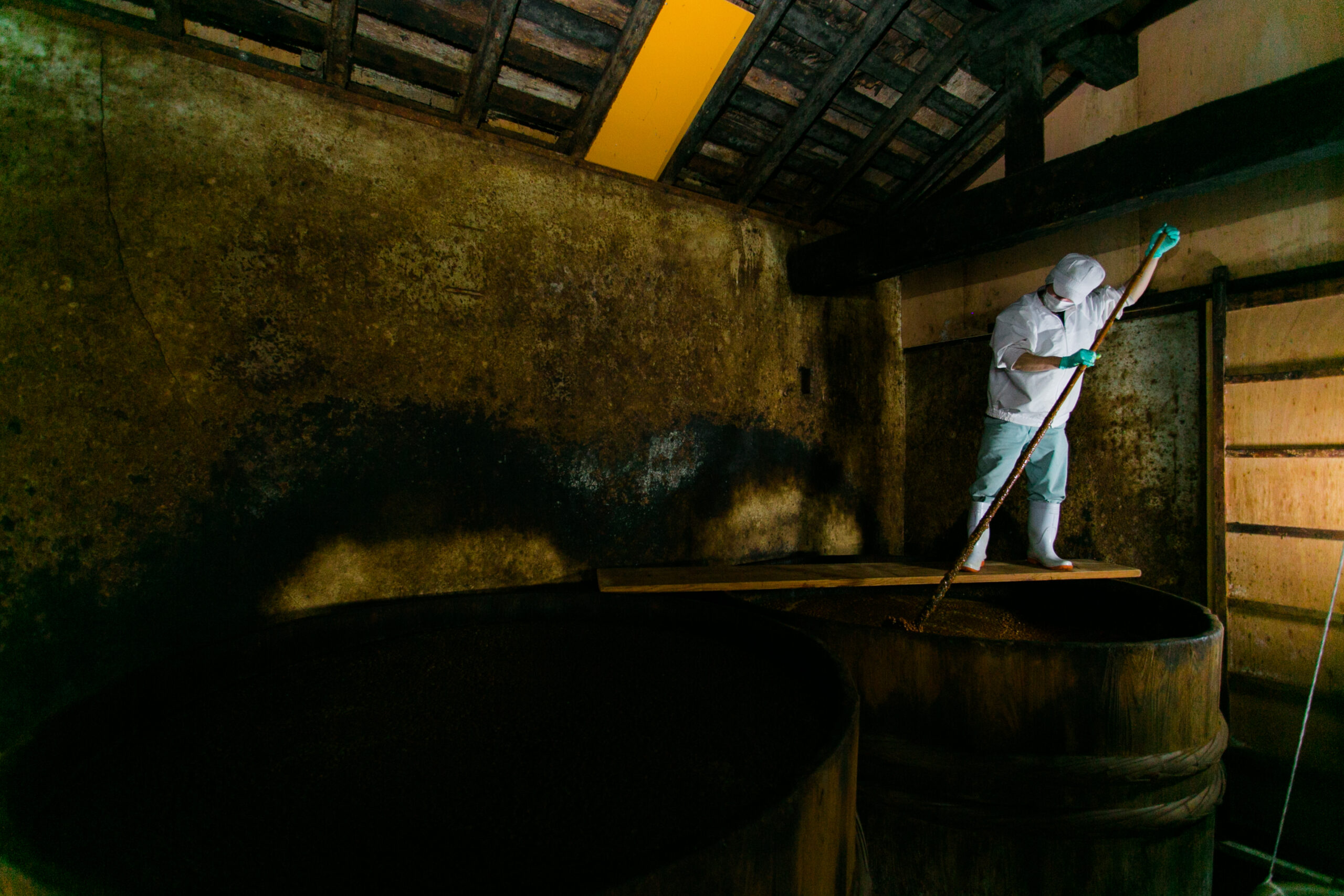
2021.10.1
“How Fermentation Informs the Humanities”
Mr. Tatsushi Fujihara, Historian
Natto, miso, soy sauce, sake, pickles, yogurt, cheese, wine, bread. I’m a huge fan of fermented foods, regardless of their provenance. And while the smells of cheese and natto sometimes verge on putrid, these foods can be addictive. Funazushi, a delicacy of Shiga Prefecture, is one of the rankest fermented foods in all of Japan, but paired with a cup of sake, the flavor experience is euphoric. Fermented foods can also have a whiff of body odor, making their smell strangely familiar, while preparations from the same ingredients can vary widely from one region to the next. Even indigo dying would be unable to produce its signature colorations and aroma without fermentation. Fermentation is our greatest contribution as a species. Sometimes I want to shout it from the rooftops.
But there’s even more than meets the eye. It’s my belief that fermentation has incredible significance from a humanities perspective as well.
First off, fermentation teaches us the gravity of what it means to “wait.” We have a stubborn habit of viewing all manner of phenomena through a contemporary lens, ignoring historical and geographical details. But fermented foods—left to wait in the same place for a month, or a year, or more, before they gather their rich fragrances and flavors—serve as a reminder of how superficial our fast-paced world can be. The practices of thinking carefully before making decisions, and of situating phenomena in a historical context, are not only central tenets of the humanities, but fundamental to the processes of fermentation.
Secondly, it teaches us the importance of letting ideas “sit.” In our hyperconnected information-driven society, we have a tendency to equate a quick glance at some facts on the internet with true knowledge of the subject. In actuality, info acquired in this way has a far shorter lifespan than the slowly accreted knowledge that we glean from reading books. The things we read or hear directly from somebody else stay in our minds for days, spanning multiple sleep cycles, whereby the information transforms into deeply rooted knowledge or malleable ideas. In much the same way, the microbes powering the fermentation process impart these foods with miraculous flavor and depth.
Thirdly, fermentation highlights the value of “by-products.” Under a relentless pressure to “produce,” our society has grown tired of productivity. But whether it’s alcohol or the tastes we call umami, the fruits of fermentation are no more than by-products resulting from the decomposition of plants and animals. It just so happens that these products are delicious, hence why we gather them for our own use. When I’m enjoying a packet of natto or a nice cup of sake, I’m often reminded of the way our habit of production has blinded us to the by-products that appear when we create things or destroy them.
The importance of waiting, of letting things sit, and the glory of by-products. The many lessons fermentation teaches us fill in the gaps created by our hyper-specialized modern society. By prizing chemical compounds that can be blended with no wait, we have abandoned huge swaths of fermentation culture. If the mission of the humanities is to recover what we have abandoned and to assert that the world before us is not, in fact, the only world possible, fermentation has a great deal more to teach us.
Translated by Sam Bett
